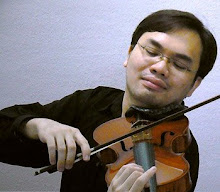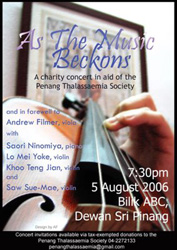When was doing my first degree here in Malaysia, I had a Muslim friend who did not wear the tudung (headscarf) and was ostracized by some of the more traditionalist of her religious compatriots. When I was doing my second degree in America, I had a friend who had converted to Islam and had chosen to wear the tudung… and was asked to leave her job because the customers were getting nervous because they were suspicious that she might be a terrorist.
I didn’t seem to connect the two incidents until earlier today, and my first question was: which situation was worse? Then I realized that that wasn’t the question at all. The real question is were those who discriminated here any different from those who discriminated there?
The tudung is a symbol, to be sure. And in one respect it is a statement of the person who choses to wear it or not wear it. One can wear it out of a sense of modesty, or even as a sign of solidarity – an outward sign of inward grace, if Catholics will allow me a little bit of paraphrasing. One can choose not to wear it because she doesn’t like some of the interpretations of why one wears a tudung – or that she simply views that inward grace is quite sufficient. In any thinking society, there has to be the ability to have a plurality of ideas, and personally I find either idea with merit – the only thing I’m fairly sure about is that in the end it’s a symbol, not the end all and be all. It’s a person’s character shown through actions that counts, and no piece of cloth worn or not worn will ever give or take it away.
I would further argue that the foundation of any sense of spirituality has to be a thinking society where practices are not just replicated but formed from questioning what came before. Just about every major religion has come from that basis: Jesus Christ and the priests of his day who followed the letter but not the spirit of the law, Muhammad who challenged the jahiliah authorities of his era, Buddha who left princehood in search of enlightenment – and I don’t know much about Hinduism, but I seem to recall the elephant god was gained his identity from a situation which illustrated that even the divine can make mistakes, and can rectify them. And for those who prefer to think themselves spiritiual or moral without necessarily subscribing wholesale to a religious doctrine – their very choice itself speaks of the foundation of character building as a search, a discovery… that the process of finding the answer is often more important than the answer itself – or the place the answer is housed.
Chances are it’s not the personal symbolism that disturbed certain people both in northern Malaysia and the American Midwest. I don’t honestly think that Malaysians saw my friend here as promoting sinfulness, or that Americans truly saw my other friend as a terrorist. They suspected – and feared – that the true meaning was something quite different. But I think secretly they desperately wanted to think of not wearing a tudung as promoting sinfulness, or wearing a tudung as a sign of evil.
Because by providing a different point of view, my two friends valiantly disrupted people’s extremely clung-to stereotypes. If wearing a tudung in Malaysia is not enough to guarantee purity, then life gets a little too complicated, doesn’t it? And if you can’t pick out a terrorist by her headgear, then life gets a little too grey for comfort, no? When it comes down to it, people often label others as the enemy not because they are the enemy. The label the others as the enemy so that they can pretend to be the good guys.
The discriminatory social fundamentalists on both sides of the globe would view each other as enemies, no doubt. It’s a crowning irony for these narcissists. For little do they realize that life only gets truly complicated and grey when you don’t realize you’re looking in a mirror and actively hate your own reflection.
Friday, July 11, 2008
Subscribe to:
Post Comments (Atom)






No comments:
Post a Comment